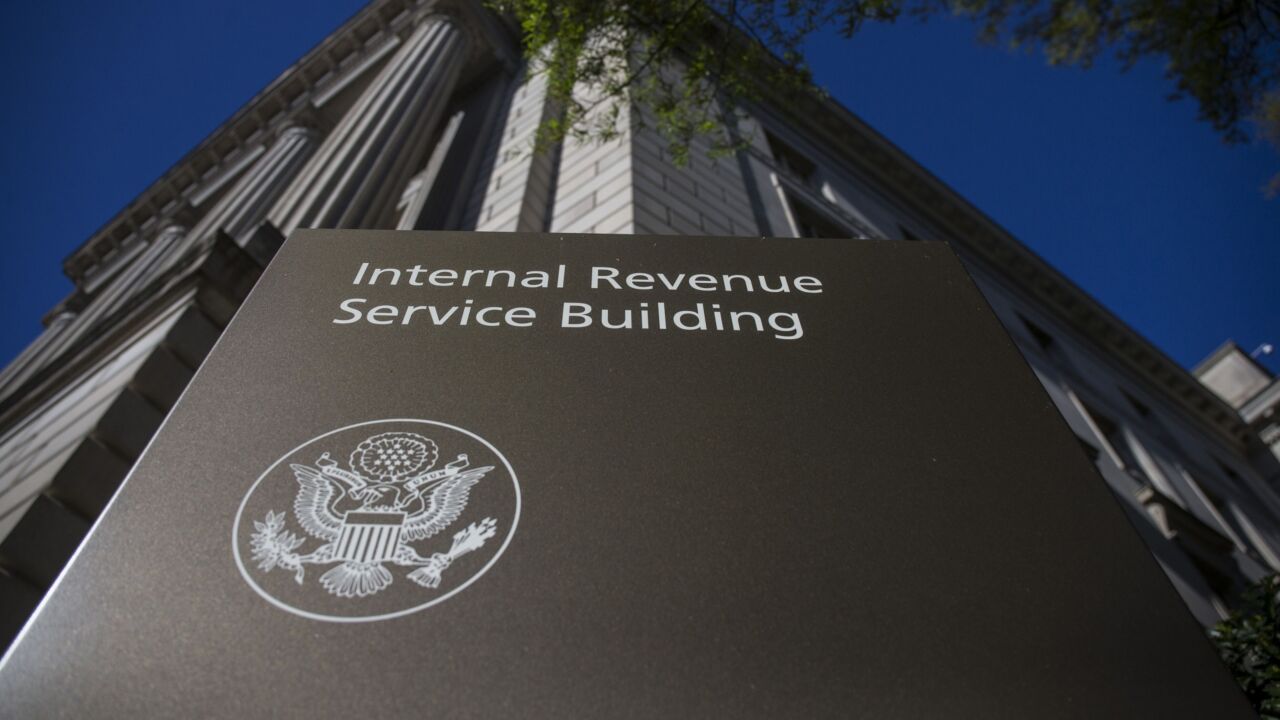GRF CPAs & Advisors, a Regional Leader firm based in Bethesda, Maryland, has been advancing its diversity, equity and inclusion efforts despite the backlash against DEI in recent years.
Trevor Williams, the firm's first director of diversity, equity and inclusion, wanted to elevate the firm's DEI efforts beyond just listening sessions and pledges. He pushed for the firm to compile its inaugural
The report showed that over 50% of all new GRF hires identify as non-white, and 52% of all senior- and associate-level staff as non-white. Over one-fourth (26%) of leadership-level personnel identify as non-white. Ten out of 26 (38%) partner- and principal-level leaders are women and 16% of them identify as non-white.

"The culture that we've been able to establish, along with concerted efforts to increase diversity, equity and inclusion in our firm, have definitely set us apart from a lot of CPA firms and a lot of companies that have shied away from it," said Williams. "I definitely am proud of the efforts that the firm has done, especially coming from our leadership, our managing partner, Jackie Cardello, all the way down."
Several of the firm's efforts last year included a neurodiversity watch and learn session, LGBTQ+ inclusion and training, a DEI diagnostic review and assessment, and the second GRF Diversity Matters scholarship awards ceremony.
The progress on diversity at GRF comes as a number of companies, such as DoorDash, Home Depot, Lyft, X, Snap, Tesla, Wayfair and Zoom, have
Big Four firm PricewaterhouseCoopers has reportedly eliminated some of its DEI targets this year for its internship and scholarship programs, according to the
But now companies are finding themselves facing the threat of
"That is extremely unfortunate that those things have transpired and they definitely have given a lot of companies cold feet," said Williams.
GRF traditionally has done a great deal of work in the nonprofit community ever since the firm was founded by partners Michael Gelman, Jerry Rosenberg and Michael Freedman in 1981 as Gelman, Rosenberg & Freedman CPAs. "All had a strong affinity for the nonprofit community, and they wanted to develop a firm that mirrored the clients that they serve," said Williams. "It was definitely a concerted effort by the firm to be as diverse, equitable and inclusive as possible."
GRF has regular check-ins with the various department leads at the firm to get an idea of the direction that they want to take their respective department. "We'll have a conversation on how DEI will factor into that," said Williams.
Accounting firms don't seem to be doing enough to foster diversity either at the firms or in academia. A recent
Last week, the Massachusetts Society of CPAs released a
Accounting Today and its parent company, Arizent, also found DEI problems in accounting and other financial sectors in a
Is the accounting profession in general getting better or worse at diversity? "I think it has pretty much been about the same unfortunately," said Williams. "Historically, the number of CPAs and the number of partners that are non-white has been anywhere from 1% to 3%, and I think those stats are still about the same. Our profession has a lot of work to do."
Overall, he believes the profession has not done a great job of promoting its benefits to students from diverse backgrounds.
"There is an untapped market, and that untapped market is individuals that are non-white," said Williams. "There needs to be greater outreach to attract individuals that are non-white to the profession. I've had conversations with other accounting firms that will explain that there isn't anyone from diverse backgrounds in proximity to their firm, so what can they possibly do? One thing that COVID has taught us is that we've been able to pivot and do our professional services remotely. That has opened up the opportunities for firms to recruit, retain and promote individuals from those diverse backgrounds. You just have to do a bit more work in order to engage with these groups to get them to want to join your firm."
Just as firms conduct due diligence during their interviewing process with potential candidates, job candidates are doing the same thing with prospective employers, he noted. "If they go on the website and do a dropdown on leadership, and the leadership doesn't look like their particular demographic, the likelihood that they'll want to come and work at the firm is not that good," said Williams.
He encourages firm leaders to talk with officials at different schools' accounting departments and tell them the firm is looking to increase diverse representation in its ranks.
"Definitely expand your recruitment activities," said Williams. "Once you've got them in the door, you definitely have to provide them with all the tools necessary. We call that 'equitable staff development.' You need to have conversations with staff about career progression, as well as with the various department directors with regards to staff within those departments, their career progression, as well as efforts to ensure that the pipeline is stable so that individuals can continue to come and strive and be able to obtain leadership positions at the organization."
Once job candidates are hired, firms need to do more to retain them. "One of the first things that can take place on a day-to-day basis is to have individuals that don't look like them really take an interest in them," said Williams. "It's very easy to establish relationships with individuals that look like you, or may come from the same college or university. It's just human nature. But you have to get out of that comfort zone and really reach out to that person and get to know them as that person. Additionally you need to provide them with all the tools necessary for them to be successful at their particular job responsibilities as well as provide them with timely feedback."
Firms can improve their makeup not only in terms of racial diversity, but also gender diversity, LGBTQ+ diversity and neurodiversity. "Firms need to do a better job at increasing diversity in whatever diversity characteristics you want to look at," said Williams.
He noted that GRF holds lunch-and-learn sessions where members of the firm learn about each other. "The lunch and learns that we have are voluntary," said Williams. "All individuals at the firm are able to attend and get an idea of learning more about the various diverse characteristics or whatever the subject matter is. We also provide them an opportunity to discuss what we watch. That has been extremely beneficial for everyone at the firm. We've been seeing the number of participants at our lunch and learns grow, which definitely makes us feel good."
He would like to see more firms acting like GRF in terms of their diversity efforts, despite the current backlash against DEI.
"Although there are a lot of efforts to do away with diversity, equity and inclusion, I think organizations, firms, companies, etc., need to not shy away from it, but in fact double down," said Williams. "The numbers have shown that individuals appreciate organizations that are being proactive as it pertains to diversity, equity and inclusion. Organizations shying away from it are doing themselves, their staff and their employees a disservice as well as the clients that they serve."





